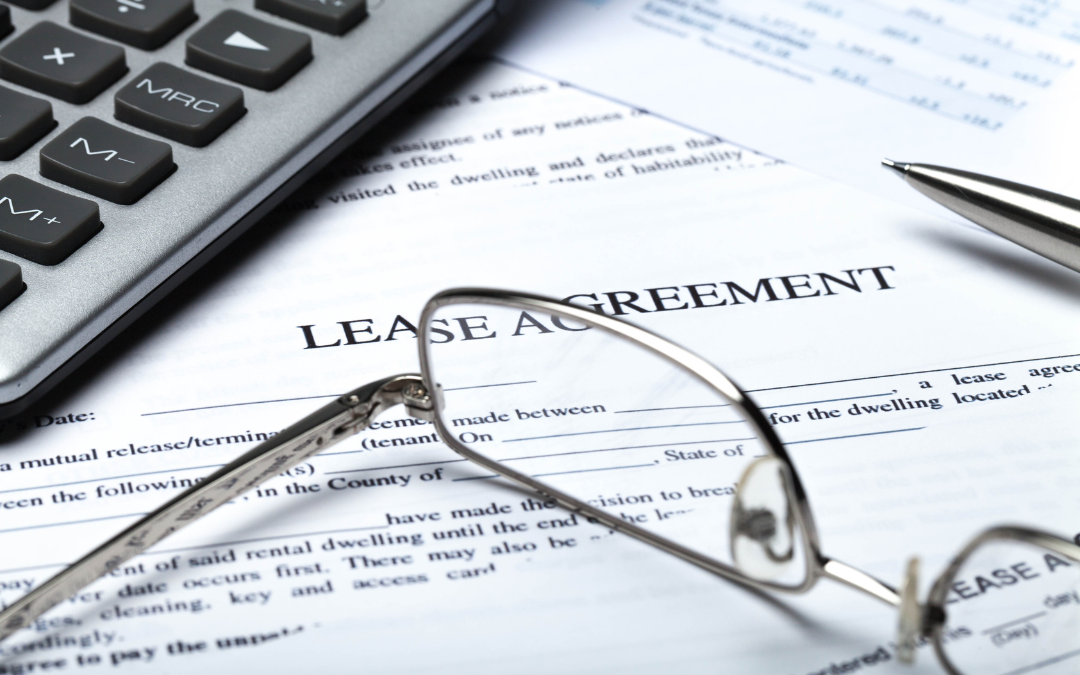What Happens If You Break Your Lease Early?

What Should You Know Before Breaking a Lease Early?
Are you thinking about breaking your lease early? Maybe you just got a new job in a different city, or your living situation isn’t working out the way you hoped. Maybe your roommate suddenly decided to take up late-night drumming, or maybe things have just changed and you feel ready for a fresh start. Whatever your reason is, you’re now staring at your lease agreement, feeling a little stuck and wondering, Can I really get out of this without ruining my finances or stressing myself out?
Did you know that breaking a lease happens more often than you’d think? And no, it doesn’t always have to end in lost money or trouble. On this blog, we’ll walk through what actually happens when you break your lease early. We’ll talk about your options, the possible risks, and how to do it the smart way. Take a deep breath. You’ve got more control than you realize, and if you handle it right, leaving your lease doesn’t have to be a disaster.
What Does It Really Mean to Break a Lease?
When you sign a lease, you’re agreeing to live in that place and pay rent for a certain amount of time, usually 12 months. If you decide to move out before that time is up, that’s what people mean when they say you’re “breaking the lease.” It’s kind of like backing out of a promise, and while it doesn’t mean you’re in serious trouble, it can lead to some costs if you’re not careful. The good news is, breaking a lease isn’t as scary as it sounds. People do it all the time for all kinds of reasons. The key is knowing your options and handling it the right way so you can move forward without too much stress.
Why Do People Break Their Lease?
Let’s be honest — nobody wants to break a lease. But life’s not always predictable. Things change. And leases, well, they don’t always keep up.
Here are a few common reasons people decide to cut out early:
- Job Relocation: Got transferred? Offered your dream job across the country? You can’t pass that up.
- Breakups or Divorce: Things fall apart. Sharing a space after a breakup? Yikes.
- Health Issues: Whether physical or mental, your home should support your well-being.
- Safety Concerns: Noisy neighbors are one thing. Feeling unsafe is another. That’s a valid reason to go.
- Financial Stress: If your rent’s eating up your income, downsizing might be the smarter move.
- Family Needs: Maybe you need to move closer to aging parents. Or you’re about to add a new family member and need more space.
- You Just Know It’s Not Right: Sometimes you move in and realize it just doesn’t feel like home. That’s real too.
No judgment. Whatever your reason, it’s yours — and it matters.
So What Are Your Options?
Breaking a lease doesn’t have to be dramatic. You’ve got choices, and some of them might surprise you.
1. Talk to Your Landlord First
This should always be your first step. Before you stress out or start packing, have a real conversation with your landlord. Be honest about your situation, stay calm, and explain why you need to leave early. Most landlords are more reasonable than people expect, especially if you’ve been paying rent on time and keeping the place in good shape. They might be open to an early move-out plan, especially if it means avoiding a long vacancy. You can also offer to help find someone to take over the lease, which makes their job easier and shows that you’re being responsible. Sometimes, just showing respect and being upfront can make a big difference.
2. Check Your Lease for an Exit Clause
Before you make any moves, take a few minutes to read your lease. Some leases actually include a built-in way to leave early, often called an early termination clause. This section will tell you if you can break the lease by giving a certain amount of notice or by paying a set fee. If your lease has this, you’re in luck. It means the process is already laid out for you, and you just need to follow the steps. Make sure to give proper notice in writing and keep a copy of everything for your records. It might not be free, but it’s a clear and simple way out.
3. Find Someone to Take Over
If your landlord is open to it, another option is to find someone who can move in and take your place. This could mean subletting, where someone else lives there and pays you rent, but your name stays on the lease. Or it could mean finding a new tenant who signs a new lease and takes over completely, so you’re fully off the hook. This option can work well if the rental is in a popular area or if you have a few months left on your lease. Just make sure to check your lease or ask your landlord first, since not all places allow subletting. If it is allowed, help screen the new person carefully and keep everything clear with your landlord to avoid problems later.
4. Leave for a Legal Reason
There are times when you can break a lease without paying a fee. These reasons might include:
- Being called for active military duty
- Unsafe living conditions, like no heat or pests
- Your landlord breaking the rules, like entering without notice
If one of these applies, you may be protected by state laws. Just make sure you keep records and give proper notice.
What Happens If You Just Leave Without Saying Anything?
Let’s say you pack your things, drop off the keys, and move out without telling anyone. What could go wrong?
Here’s what might happen:
- You might lose your security deposit
- Your landlord could charge you for the rest of the rent
- It could hurt your credit
- It might go to collections
- Future landlords might see it on your rental history
Not great, right? That’s why it’s better to talk things through, get it in writing, and leave on good terms if you can.
Here’s How to Break Your Lease the Smart Way
Let’s keep it simple. If you want to break your lease the right way, here’s what to do:
✅ Step 1: Read Your Lease
Yes, actually read it. Look for anything about ending early, notice periods, or fees.
✅ Step 2: Talk to Your Landlord
Don’t wait. Be honest. The sooner you talk, the more time they have to plan.
✅ Step 3: Put It in Writing
After the conversation, write a short letter or email to confirm. Include your planned move-out date. Keep a copy.
✅ Step 4: Help Find a New Tenant
If possible, offer to help find someone to take your place. This can really smooth things over.
✅ Step 5: Clean the Place Up
Make the place look nice. Patch any holes. Clean the floors. The better it looks, the better chance you’ll get your deposit back.
Honestly, don’t be too hard on yourself. Breaking a lease happens, and it doesn’t mean you messed up. Life changes. Things come up. Sometimes you just need a fresh start, and that’s okay. A lease is just an agreement to stay somewhere for a certain time, not something that should keep you stuck when things no longer feel right. What really matters is how you handle it. Talk to your landlord, be honest, and try to leave on good terms. If you do your best to be fair and responsible, you can move forward without all the stress. This isn’t the first time someone’s broken a lease, and it won’t be the last. So take a deep breath and remind yourself that it’s okay to move on. If leaving is what’s best for you right now, then that’s the right choice. You’re not stuck. You’re just moving forward. New place, new chapter, and maybe even new adventures. You’ve got this.
If you’re ready for a fresh start or just have questions about your next move, A-Line Realty is here for you. Reach out to us anytime and let’s figure it out together.





0 Comments